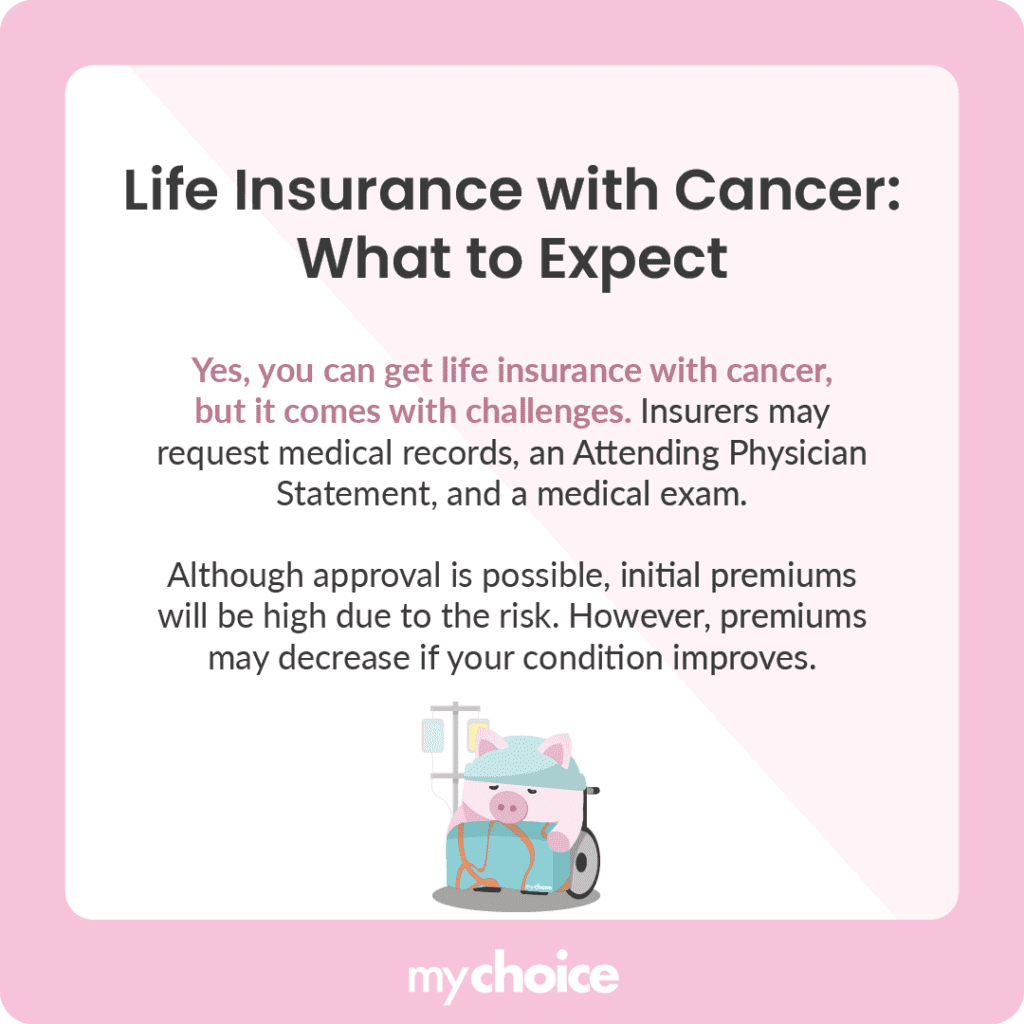Getting a cancer diagnosis can turn your life upside down, and managing your finances amidst the news can be even more confusing. Something you might wonder is: can you get life insurance if you have cancer? The good news is that it’s possible, though it may not be as straightforward as you think.
Whether you’re already undergoing treatment, newly diagnosed, or in remission, some options can provide you and your loved ones with peace of mind. Learn the policy types you qualify for, what factors affect your rates, and what you can do to secure the best options.
Can You Get Life Insurance if You Have Cancer?
Yes, you can get life insurance if you have cancer, but it may present some obstacles. With your consent, your life insurance provider may write to your healthcare provider to request medical details and an Attending Physician Statement to determine your premiums.
If you get approval, your initial premiums will be high as the company will put itself at high risk. Should your cancer improve over time, your premiums may drop.

What if You Already Have Life Insurance?
If you already had life insurance after receiving your diagnosis, your coverage won’t typically change (given that you were honest about when you were diagnosed). Insurance companies can’t make retroactive changes.
However, you may lose employer-provided insurance if your diagnosis requires you to leave your job. Still, you can convert your workplace policy into individual insurance.
Does Life Insurance Cover Cancer?
Technically yes, but it depends on your policy. If you already had a life insurance policy that included riders like accelerated death benefits or a terminal illness, you can access the death benefits while alive to cover medical expenses or use them for income replacement.
Types of Policies That May Approve Cancer Patients
While patients in remission can qualify for traditional life insurance, those currently undergoing treatment may have limited options. Here’s what you can consider.
Factors That Influence Your Approval and Rates
While cancer patients and survivors can qualify for life insurance, certain factors can influence how easily you get approved and your premiums. Each company has unique underwriting guidelines, but here’s a look at how certain factors can affect your application.
The Two-Year Waiting Period: Why It Matters
If you’re applying for life insurance with cancer – most typically a guaranteed or simplified issue policy – you may encounter a two-year waiting period. This period covers high-risk clients and allows insurers to manage potential losses.
If you die within this two-year waiting period, your beneficiaries may not receive the full death benefit. Instead, they may receive a refund on the premiums paid with slight interest (often between 5% and 10%) or only 30% to 40% of the benefit amount. After these two years, your beneficiaries can receive the full death benefit if the policy is still active.
Cancer patients must understand the two-year period, as they can consider combining policies and understand exactly what coverage they can receive.
Cancer Survivors Can Get Better Rates
Having cancer doesn’t mean you don’t have good life insurance options. The further you are from your original diagnosis and the longer you stay in remission, the more affordable your policy becomes. Many insurers offer better rates when there are no signs of recurrence, you undergo regular check-ups, and you adhere to a healthy lifestyle.
In addition, if you bought guaranteed or simplified issue life insurance, you can reapply for a new policy with better rates.
Key Advice From MyChoice
- Be honest with your insurer. Providing misleading or incomplete information can lead to claims denials.
- Consider a limited policy, as it’s better than having no coverage at all. If you’re recently diagnosed, your best option may be a guaranteed or simplified policy.
- Keep comprehensive medical records to present to insurers. Underwriters can assess your health more comprehensively.








